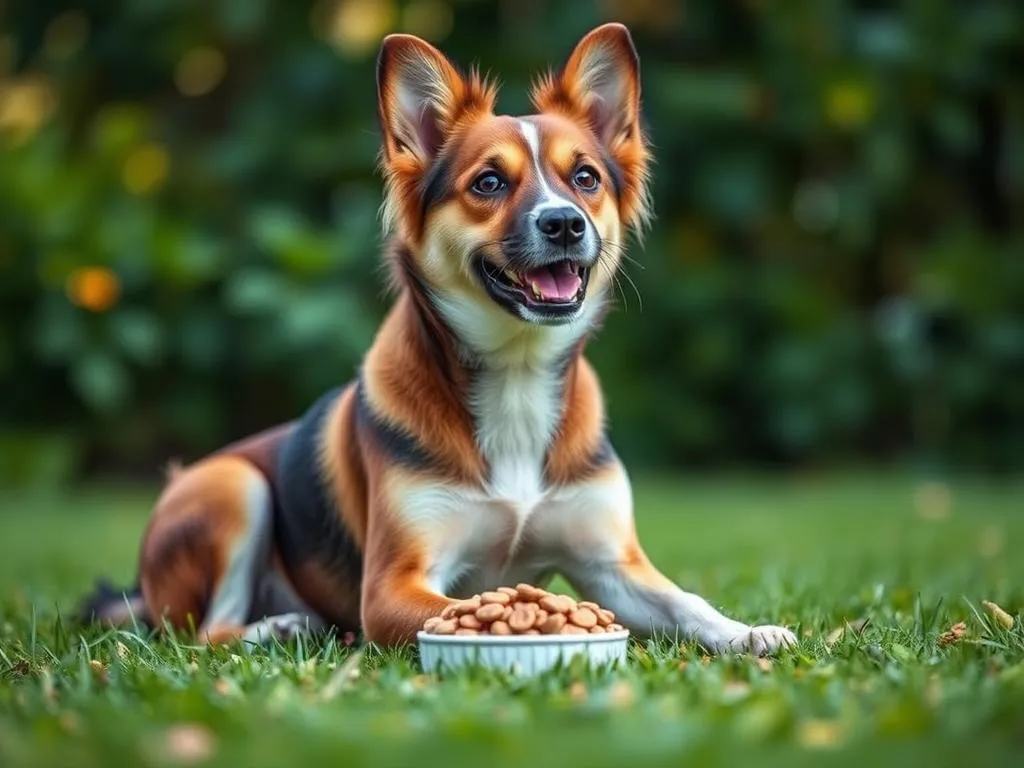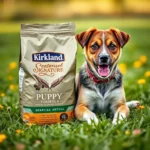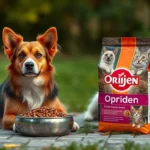
Introduction
Dog nutrition is a vital aspect of pet ownership that significantly influences the health and well-being of our furry friends. Every dog, regardless of size, has specific nutritional requirements that need to be met for them to thrive. For small dogs, these requirements can be particularly unique due to their rapid metabolism and size-related health issues. In this article, we will explore the best dog foods for small dogs, highlighting key factors to consider, types of food available, and recommendations for optimal nutrition tailored to small breeds.
Understanding Dog Nutrition
Nutritional Needs of Dogs
Understanding what goes into your dog’s diet is crucial for their overall health. Dogs require a balanced combination of macronutrients:
- Proteins: Essential for growth, repair, and maintenance of body tissues. High-quality protein sources like chicken, beef, and fish should be prioritized.
- Fats: Provide energy and support cell function. Healthy fats such as omega-3 and omega-6 fatty acids are vital for skin and coat health.
- Carbohydrates: While not essential, they can provide energy and aid in digestion when sourced from whole grains and vegetables.
In addition to macronutrients, dogs also need micronutrients, including vitamins and minerals, which play key roles in various physiological processes. Don’t forget about water, as hydration is fundamental to maintaining health in dogs of all sizes.
Specific Needs for Small Dogs
Small dogs have unique metabolic rates compared to their larger counterparts. Their faster metabolism means they require more calories per pound of body weight, leading to specific dietary needs.
Common health issues related to diet in small breeds include:
- Dental problems: Small dogs are prone to dental disease, making kibble a good option to help keep teeth clean.
- Obesity: Portion control is crucial, as small breeds can easily become overweight.
- Hypoglycemia: Smaller dogs are more susceptible to low blood sugar levels, necessitating more frequent feeding.
Understanding these factors is essential for maintaining the health and happiness of your small dog.
Evaluating Dog Food Options
Types of Dog Food
Choosing the right type of dog food is crucial for meeting your small dog’s nutritional needs. Here are the most common options:
- Dry kibble: Convenient and cost-effective, kibble helps with dental health but may lack moisture.
- Wet/canned food: High in moisture, making it beneficial for hydration, but can be more expensive.
- Raw diets: Advocates argue for the natural benefits, but they require careful preparation to avoid nutritional imbalances.
- Homemade dog food: Allows for full control over ingredients but requires knowledge to ensure a balanced diet.
Reading Dog Food Labels
Understanding dog food labels is essential for selecting high-quality products. Key points to consider include:
- Ingredient list: Look for whole food ingredients, with protein sources listed first.
- Quality proteins: Avoid foods with fillers like corn and soy, opting for meat and fish as primary ingredients.
- AAFCO standards: Ensure the food meets the Association of American Feed Control Officials (AAFCO) standards for complete and balanced nutrition.
Key Factors in Choosing the Best Dog Foods for Small Dogs
Ingredient Quality
When selecting the best dog foods for small dogs, ingredient quality is paramount. Whole foods, such as real meat, vegetables, and grains, should dominate the ingredient list. Additionally, the inclusion of antioxidants and probiotics can contribute to overall health by supporting digestion and immune function.
Breed-Specific Formulas
Certain brands offer breed-specific formulas tailored to the unique needs of small dog breeds. These diets often account for the specific health concerns and nutritional requirements of popular small breeds like Chihuahuas, Pomeranians, and Dachshunds.
Special Dietary Considerations
Small dogs can have specific dietary needs that require attention:
- Allergies and sensitivities: Some small breeds may be prone to food allergies, necessitating hypoallergenic options.
- Weight management: Formulas designed for weight control can help prevent obesity in smaller dogs.
- Age-related needs: Nutritional requirements change as dogs age, so it’s important to adjust their diet accordingly, whether they are puppies, adults, or seniors.
Recommended Best Dog Foods for Small Dogs
Top Commercial Brands
Selecting high-quality dog food is crucial for the health of small breeds. Here are some of the best dog foods for small dogs on the market:
- Brand 1: Royal Canin Small Adult Formula
- Features: Tailored for small breeds, promotes healthy weight and dental health.
- Benefits: Enhanced palatability and specific nutrient balance for small dogs.
-
Target Audience: Pet owners looking for breed-specific nutrition.
-
Brand 2: Hill’s Science Diet Small Paws
- Features: Made with high-quality ingredients, specifically formulated for small dogs.
- Benefits: Supports healthy digestion and immune function.
-
Target Audience: Pet owners focused on holistic health.
-
Brand 3: Blue Buffalo Life Protection Small Breed
- Features: Real meat as the first ingredient, combined with whole grains.
- Benefits: Rich in antioxidants and omega fatty acids for coat health.
-
Target Audience: Owners wanting a natural food option.
-
Brand 4: Nutro Ultra Small Breed
- Features: A mix of proteins from chicken, lamb, and salmon.
- Benefits: Supports healthy skin and coat with added Omega-3 and Omega-6 fatty acids.
-
Target Audience: Owners who prefer multi-protein sources.
-
Brand 5: Wellness CORE Small Breed
- Features: Grain-free formula with high protein content.
- Benefits: Supports lean body mass and muscle tone.
- Target Audience: Pet owners seeking grain-free options.
(Continue to list additional brands as necessary)
Homemade Dog Food Recipes
For those interested in preparing their dog’s meals, here’s a basic recipe for a balanced meal for small dogs:
Ingredients:
– 1/4 cup of cooked chicken (diced)
– 1/4 cup of cooked brown rice
– 1/4 cup of cooked carrots (mashed)
– 1/4 cup of peas (cooked)
– A few drops of fish oil for omega-3 fatty acids
Instructions:
1. Combine all ingredients in a bowl.
2. Mix thoroughly until well blended.
3. Serve at room temperature.
Ingredients to Include and Avoid:
– Include: Lean meats, vegetables, whole grains, and healthy fats.
– Avoid: Onions, garlic, chocolate, grapes, and any foods toxic to dogs.
Tips on Preparing and Storing Homemade Dog Food:
– Always consult with a veterinarian to ensure balanced nutrition.
– Store homemade meals in the fridge for up to three days or freeze for longer storage.
Tips for Transitioning to a New Dog Food
Switching your small dog’s food requires a gradual approach to avoid digestive upset. Here’s how to do it effectively:
- Timeline: Begin by mixing 25% of the new food with 75% of the old food for the first few days. Gradually increase the new food to 50%, then 75%, before fully transitioning over the course of 7-10 days.
- Signs to Watch For: Monitor your dog for any signs of digestive issues, such as vomiting or diarrhea. If these occur, slow down the transition.
Common Myths About Dog Nutrition
There are several misconceptions about dog nutrition that can lead to poor dietary choices. Let’s debunk some of these myths:
-
Dogs can eat anything: While dogs are omnivores, not all human foods are safe for them. Foods like chocolate, onions, and grapes can be toxic.
-
Grain-free is always better: Many dogs do well on diets that include grains. Grain-free options should only be considered if there’s a specific dietary need.
Consulting with a veterinarian for dietary advice is essential, especially for addressing unique health concerns.
Conclusion
Proper nutrition is a cornerstone of health for small dogs. By choosing high-quality dog food tailored to their unique needs and considering their specific dietary requirements, you can help ensure your small dog lives a happy, healthy life. Always consult with a veterinarian or a pet nutritionist for personalized advice tailored to your dog’s individual needs.
With the right information and resources, you can confidently choose from the best dog foods for small dogs available today. Your furry friend deserves the best!









